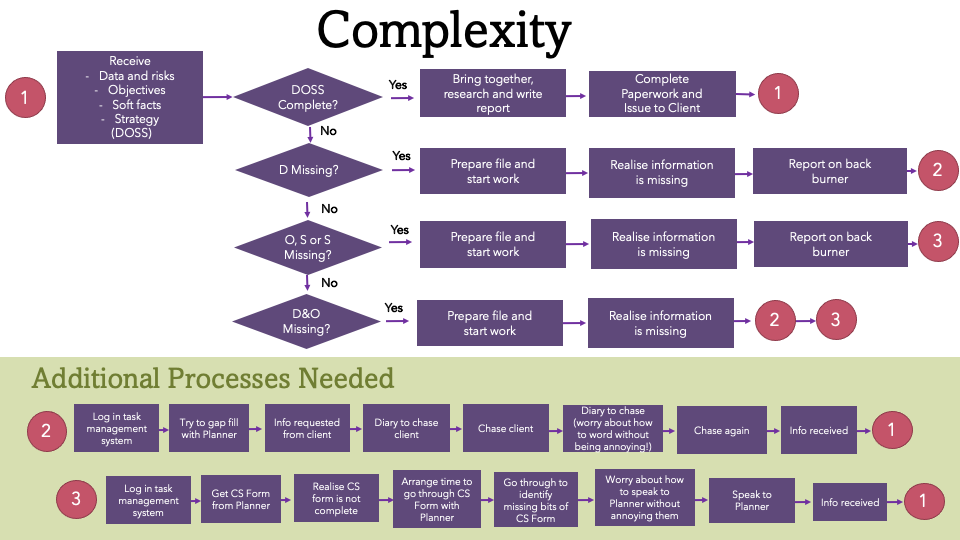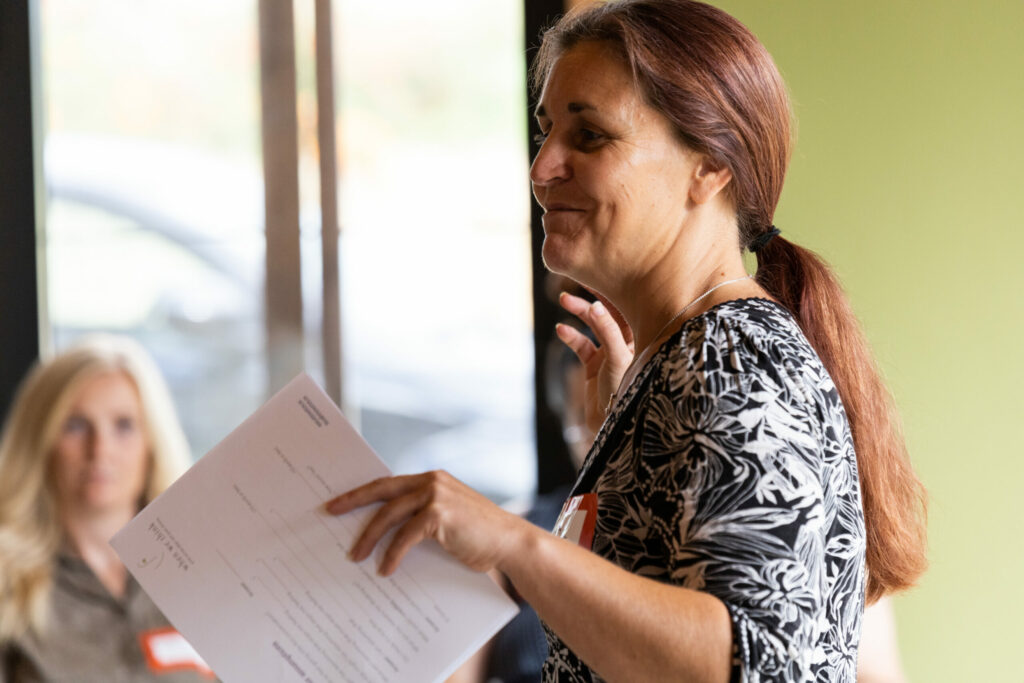
With a background that’s rich in paraplanning experience, Becca Timmins (pictured above at the Big Day Out 2022) is ideally placed to lead a session on personal development power-ups for paraplanners. But what’s in it for paraplanners – and the financial planning practices they work for?
What’s the one thing Becca Timmins wished she’d mastered when she started out as a paraplanner in 2003?
How to give feedback.
“I’ve been in an operations role since 2010, but was paraplanning for quite a long time before that, and I would have massively benefited from thinking about how to give feedback.”
“I’m not thinking about the kind of feedback you give to a team member as a manager – or vice versa – but the ‘the-information-you-gave-me-on-this-file-is-crap-and-this-is-why-I-need-it’ kind of feedback you needed to share with advisers. I just didn’t have those skills.”
These days, the coach and facilitator – and operations director of financial planning practice, Emery Little – recognises that the exchange of feedback relies on a vital quality that she would have loved to have been given techniques to practice earlier in her career too: “I wasn’t taught to listen. To REALLY listen. And that’s a skill that is massively valuable for giving and receiving feedback.”
“Take the crap file example. If I’m going to a planner and saying ‘this is a problem, the file isn’t good enough’ there’s a danger that all they hear is ‘there’s a compliance problem’ and the quality of the conversation is just doomed.”
“But if you can frame and share feedback constructively, and then sit back and really listen to what a planner says, more often than not you realise that you’re both trying to achieve very similar outcomes for clients but are just approaching it in different ways.”
“Paying attention to what people are actually saying and considering how to give feedback – both contribute massively to fostering understanding that results in healthier and happier working relationships.”
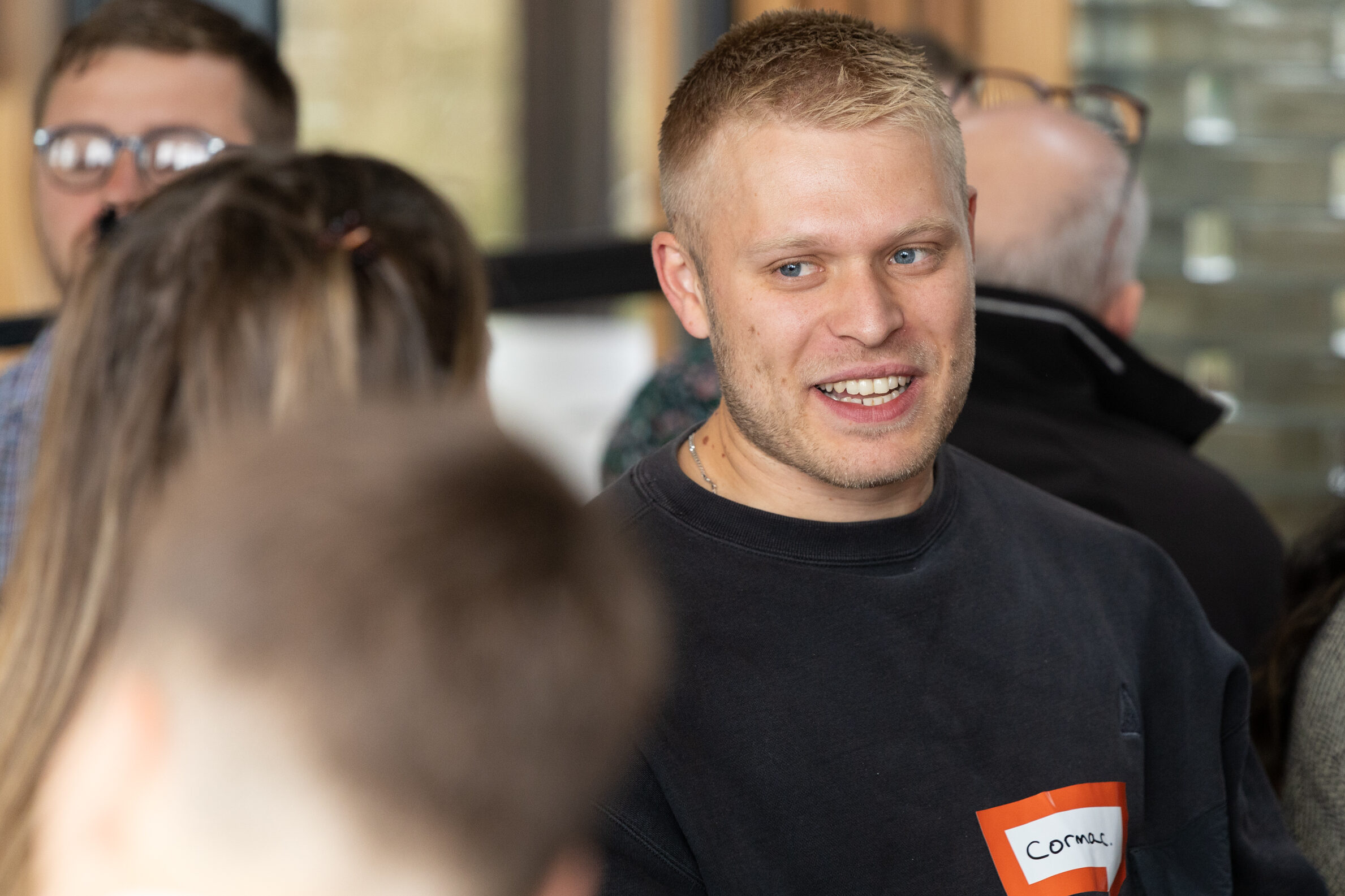
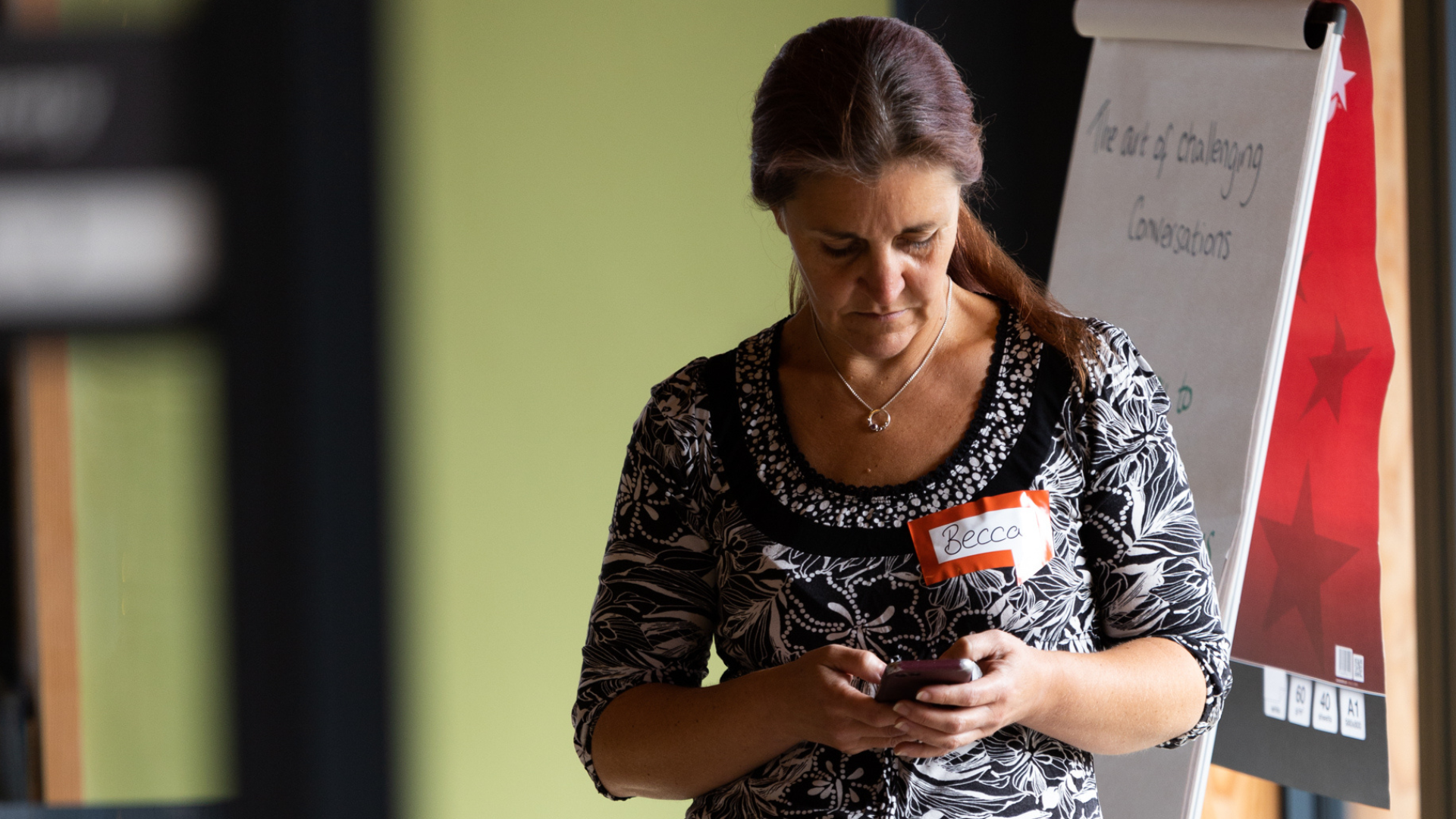
Giving feedback, learning to listen and another essential skill – time management – aren’t issues unique to Becca’s experience as a former paraplanner. They’re issues that have cropped up over the past year or so when Becca has been facilitating a small gathering of paraplanning team leaders for the Paraplanners’ Assembly.
And it’s the frequency with which they featured as a challenge for paraplanners during those team leader discussions that led us to invite Becca to develop a three-hour workshop – called ‘Personal development power-ups for paraplanners’ – that’s designed specifically to help paraplanners gain and practice those skills.
Made possible thanks to the support of Aegon, and taking place online, the workshop begins at 9:30am on 12 May 2023.
Despite being online the format will echo the interactive style of the workshop sessions that Becca ran at the Big Day Out in September 2022. (To see what paraplanners thought of those sessions, scroll down and take a look at the post-it comments pictured at the bottom of this page.)
As for the power-ups, here are three things – in Becca’s own words – that taking part in the workshop will offer you and the business you work for.
1. Give feedback confidently and listen effectively
“I often hear people say they’d like to be able to communicate better. Or I don’t feel heard. Or I don’t feel like I can get my point across very well. Or I don’t feel very well listened to. One of the things that I think people will walk away with is a way to frame feedback in a way that others can hear more easily and so listen in order to reach a better outcome that takes into account both people’s points of view.”
2. Take away practical tools to help manage your time
“Because paraplanners sit in the middle of the organisation – between clients, planners and administrators – they’re pushed and pulled in all three directions. It means they have many demands on their time and often it’s things that are important but not urgent.
Meanwhile, investing time to make things better in a way that will save everyone time – like fixing those report templates, for example – that’s the kind of investment of time that tends to slip.
I want people to walk away with a different way of thinking about time management because, for me, it all comes down to priorities: it’s not that I don’t have the time, it’s that I’m unable to prioritise my time in the right ways or in different ways. Take part and you’ll leave the session with tools to take and try out the next day – practical methods to distinguish between important and urgent tasks and how to prioritise them.”
3. Good for you at work – and good for the business you work for
Historically, I think there’s been a greater emphasis on acquisition of knowledge technically, what exams do you need to pass to be a paraplanner, how do you write better reports – that that sort of thing. Or, for administrators, go and see such-and-such a brand for a day to find out more about their platform.
But the more you and the business you work for looks after the whole person, the better they’re going to perform at work. When we learn to listen to each other better, then we can begin to talk in ways that other people will understand. For instance, as a paraplanner, if you talk about the outcomes for a client, and wanting to give a client a great service, a planner is far more likely to listen to you than if you come from a ‘well-the-file-check-says-that-the-file-needs-to-look-like-this’.
As an employer, if you’re giving people to chance to learn this stuff, giving them the space to learn, and investing time and money for this sort of training. you’re affecting the lives of the people who are working for you in a much bigger way than just what they can do for your clients.
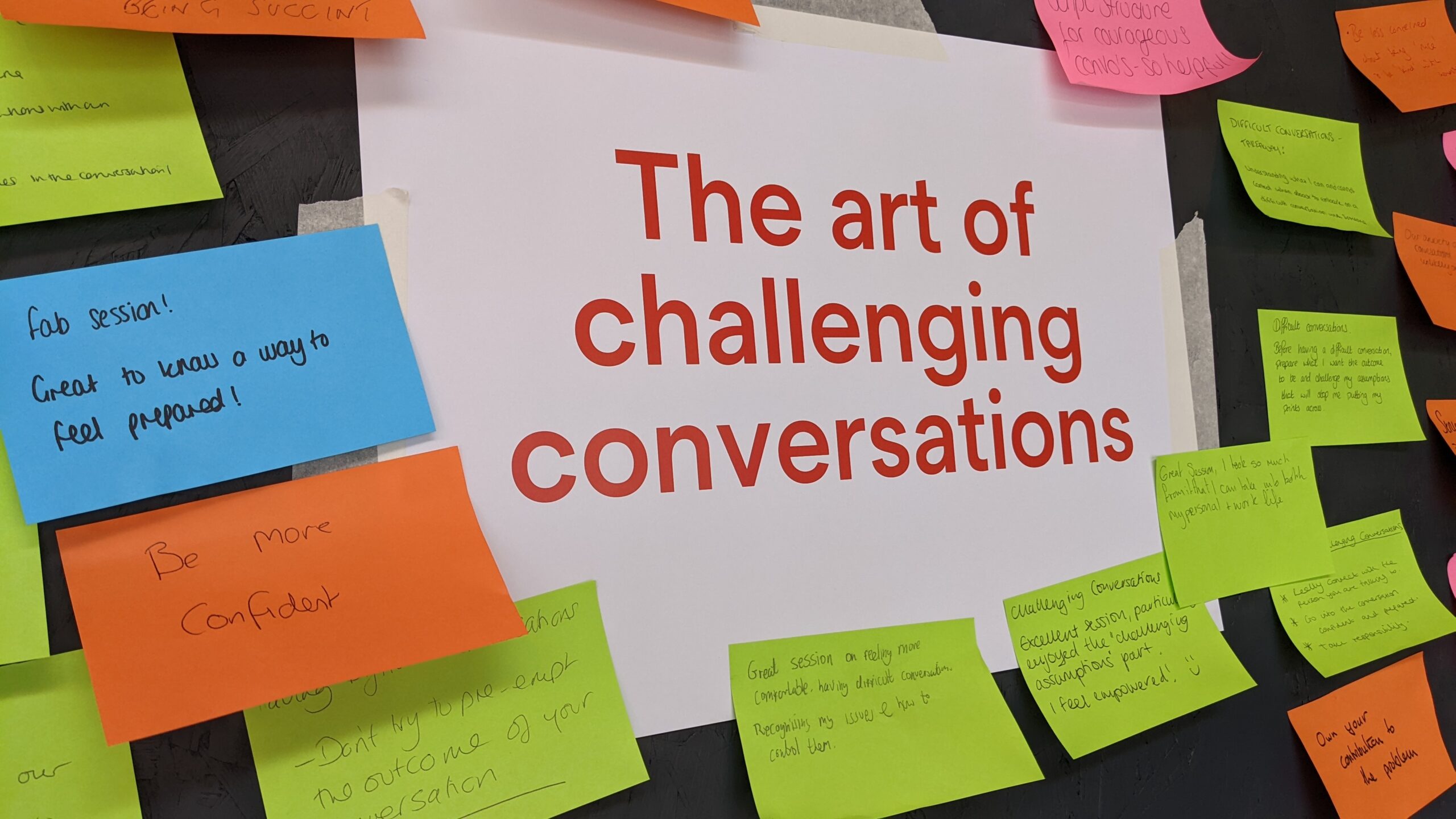
If you liked that, here are two things you can do right now which we think you might like too
Take part in the power-up workshop
If you’d like to join Becca at the Personal development power-ups for paraplanners – a 3-hour online workshop starting at 9:30am on 12 May 2023 – just tap the link.
» Book now
Meet up with other team leaders
Team leader? Then you can join our sessions too. But there’s a waiting list. To join it, tap the link and post a message at The Big Tent thread.
» Visit the thread
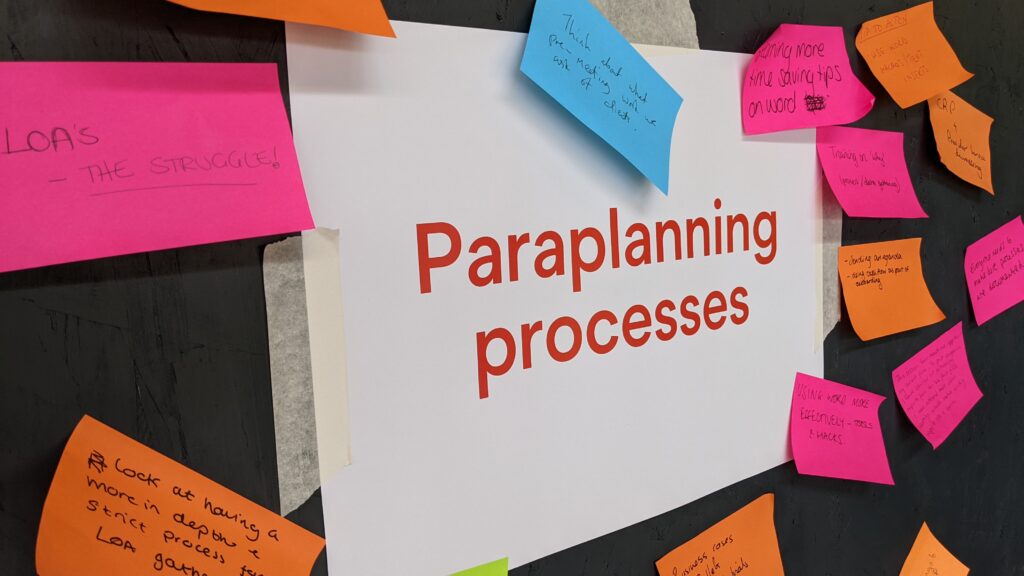
For more than a year, and inspired by a suggestion by Tamnna Jethwa, the Paraplanners’ Assembly has been hosting a regular gathering for a small number of paraplanning team leaders and managers.
Meeting online every 4-6 weeks, the sessions give participants the chance to talk about the issues and topics that they share in common and influence their work. We’ve invited Becca Timmins – who facilitates the group – to share the conclusions they reached at a recent gathering on a topic close to paraplanners’ hearts: report preparation.
“The handover from advisers or planners to paraplanners when preparing reports.”
That was the answer recently offered by team leaders to this question ‘If you were to think of a process that needed to improve, what would it be, and how would you improve it?’. So we decided to dedicate some time in our latest meeting online to consider it.
Having led a paraplanning team in the past myself, it’s a process that I know team leaders (and paraplanners) continually seek to improve. And it’s a process that can often leave adviser and paraplanners alike feeling frustrated.
Because whether it’s a lack of available data or delays in getting hold of additional information, preparing reports can often become a complex process – when, in practice, it ought to be possible to keep it simple.
So what steps can you take to make it simpler?
In a moment, I’m going to share the five steps that our group concluded could help fix things but – first – it’s important to be clear about terms.
What’s the difference between a simple and a complex process?
A simple process is where you have all the information you need to gather your information, write your report and issue the report.
But when something is missing, the report process grinds to a halt, and it soon becomes a complex process.
A complex process involves additional steps such as logging missing information, chasing a consultant for information, diarising reminders and so on.
During this time, your brain is taking a journey: switching from one task to the next that involves various levels of starting, stopping, focus and switching – resulting in an as much as 20% loss of time, productivity and efficiency.
And applies to each project that’s complex so, the more complex projects you deal with, the less time you’re able focus on other projects.
Here are our key tips to ‘keeping it simple’ that we wanted to share with you
1. Get collaborative
The collaboration between an adviser and paraplanner is essential to complete a report, including understanding the information requirements to briefing process.
Both parties must work together to gather the data and information that’s needed to compile the report, either by working through the meeting notes or the paraplanner attending the client meeting themselves.
2. Keep it fresh
Diarise time to discuss the case with the adviser after their client meeting, so that information remains fresh. This will also provide help the paraplanner to complete the report, perhaps with a quicker turnaround (a win win for everyone!).
3. Make a checklist
Reduce the reliance on the adviser to check information.
Use a checklist to double-check all information is received so that the case is ready to be written, preventing any issues later on. Run through this at the briefing and highlight missing areas or information that wasn’t recorded.
4. Make sure everyone understands their role
The team should be familiar of each person’s responsibility in delivering the report. This helps to source and deliver the information in good time, and to understand the impact of delays.
5. Create a single ‘source of truth’
Establish one location where all information is stored so that it’s easily accessible and avoid the need for repetition.
The key takeaway from this session was the importance of collaboration between consultants, advisers, planners and paraplanners – especially when completing reports.
Would you like to learn and share more?
If you liked that, here are three things you can do right now which we think you might like too.
Take part in a power-up workshop
Becca Timmins is facilitating Personal development power-ups for Paraplanners – a 3-hour online workshop on 12 May.
» Book now
Share ideas in The Big Tent
Post questions, offer suggestions, and share your experience and expertise with other paraplanners in our discussion board: The Big Tent.
» Join the conversation
Meet up with other team leaders
Team leader? Then you can join our sessions too. But there’s a waiting list. To join it, tap the link and post a message at The Big Tent thread.
» Visit the thread

